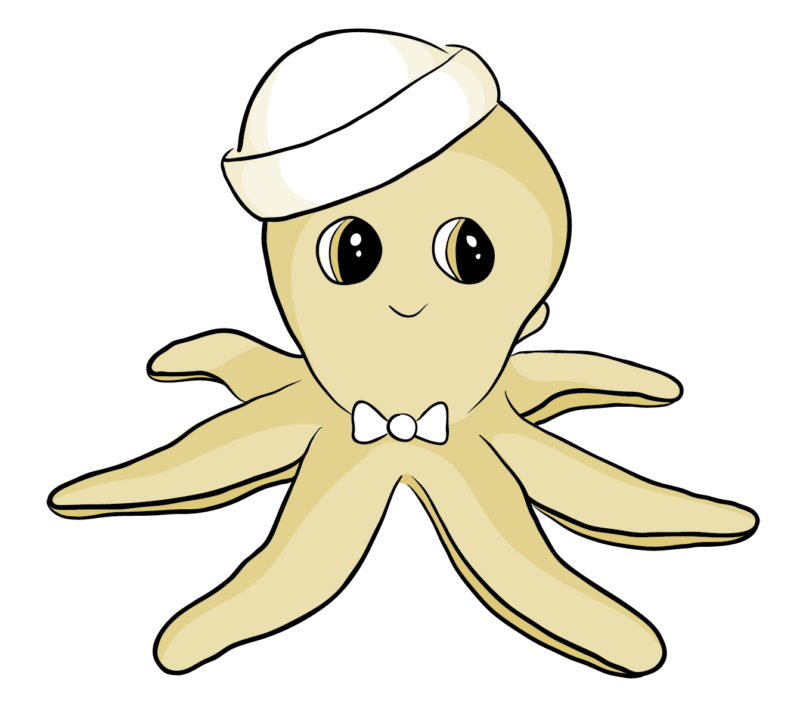FEATURES:
- Speaks Spanish, English, and French
- Batteries included
- Not dishwasher-safe
Its body is light blue and 100 percent synthetic. It’s a good-natured and naive octopus, and its smile is genuine. Its eyebrows are green, as are the two blushing spots on its cheeks. It weighs 11.4 ounces. It’s clearly intelligent—as nearly all octopuses are, of course. It wears a bow tie, and a sailor’s cap is cocked rakishly just a little to the left. If you squeeze the animal’s head (which is objectively small, but enormous compared to its body), a melody plays (Bach, I’m almost positive). Really, there are four melodies (all four by Bach, I think): to go from one to another, you just have to squeeze the creature’s head.
There is much to be said about the octopus’s tentacles, with their matching, somewhat indecipherable images embroidered in eight different colors. When you press them, a surprisingly feminine voice recites the names of those colors. Eventually, after mashing each tentacle hundreds of times, my son will be able to name those colors in Spanish, and in French, and in English as well, because a switch located on the mollusk’s head allows the eight-colored octopus to also express itself in those languages.
Following is a brief description of the Spanish-speaking female voice:
- ¡Azul! (Blue!) The octopus’s voice pronounces the word with enthusiasm, subtlety, and just a smidgen of surprise, as if it had forgotten the name of the color and was remembering it only now. I should also mention that the sound of the z (pronounced like the s in sea) leads one to believe this is a Latin American octopus we’re dealing with—no Iberian lisp here.
- ¡Verde! (Green!) There is enthusiasm in the invertebrate’s voice, but also impertinence, as if it needed to clarify that we are talking about that specific color and no other. The labiodental pronunciation of the v comes off as a bit ridiculous, given that, as the Royal Spanish Academy has indicated in various documents, “in Spanish there is no difference at all between the pronunciation of the b and v.”
- ¡Amarillo! (Yellow!) I’m really not sure if there is tenderness on the part of the octopus when it pronounces this word. The voice sounds forced, inauthentic, mechanical.
- ¡Marrón! (Brown!) At this word, the octopus’s voice becomes unexpectedly sensual. Anyway, as far as I know, here in Latin America we call this color café and not marrón. The peninsular Spanish is cause for confusion, considering the aforementioned ...
You have reached your article limit
Sign up for a digital subscription and continue reading all new issues, plus our entire archives, for just $1.50/month.
Already a subscriber? Sign in





